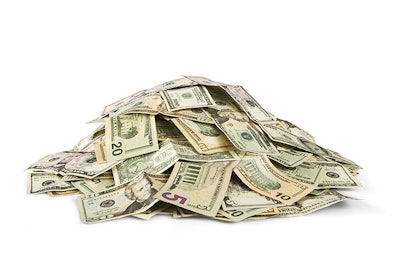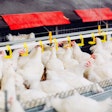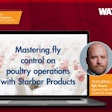
The adoption of blockchain and Internet of Things (IoT) sensors and trackers could reduce food fraud costs by $31 billion by the year 2024, according to a new report from market analysis company Juniper Research.
The food industry could see substantial cost savings as early as 2021, while compliance costs could be reduced by 30% by 2024. Mislabeled, dilated or substituted food products cost the global food industry an estimated $40 billion each year.
“In the poultry market, as with many food production markets, there are significant concerns around how food is produced, what methods are used and what standards are upheld,” Nick Maynard, Lead Analyst at Juniper Research, said. “With food fraud costing the industry a significant amount each year, blockchain has the potential to verify food provenance, which will reduce risks in the process, saving money.”
Guaranteeing authenticity from farm to fork
IoT solutions make it easy to track a bird’s progression throughout the supply chain from farm to fork. Blockchain gives users the digital platform to securely store this data, increasing transparency and building food trust for farmers, retailers and consumers.
Transparency was rated as “extremely important” by 36% of respondents in a recent survey from the Center for Food and Agriculture Business at Purdue University.
Secure data storage means that companies can guarantee the quality and authenticity of a poultry product. Paper-based programs currently in use are inefficient and prone to errors.
The use of new blockchain and IoT technologies could help farmers and retailers streamline supply costs, simplify regulatory compliance and make the food recall process more efficient, the report says.
The two technologies could be of greatest benefit in specialty poultry products, such as organic and free-range eggs. In 2017 and 2018, Cargill piloted a program with ‘traceable turkeys’ that told consumers exactly which farm a bird came from and how it was fed, raised and processed.
“While blockchain is early in its adoption cycle, vendors have already made great strides in building systems that can be beneficial for industries. The next few years will see vendors focusing on high value use cases, meaning that farming and food provenance will be increasingly in the technology limelight,” Maynard said.
Like what you just read? Sign up now for free to receive the Poultry Future Newsletter















